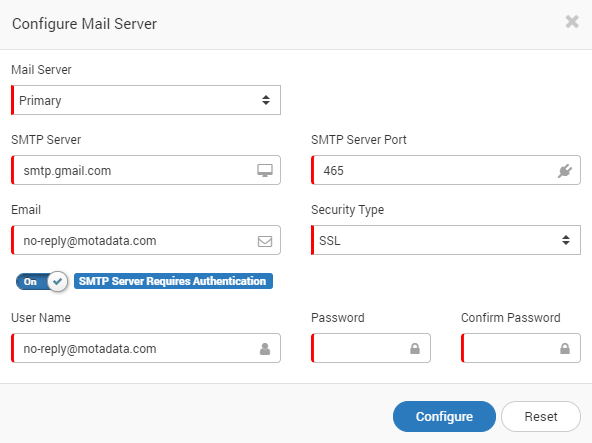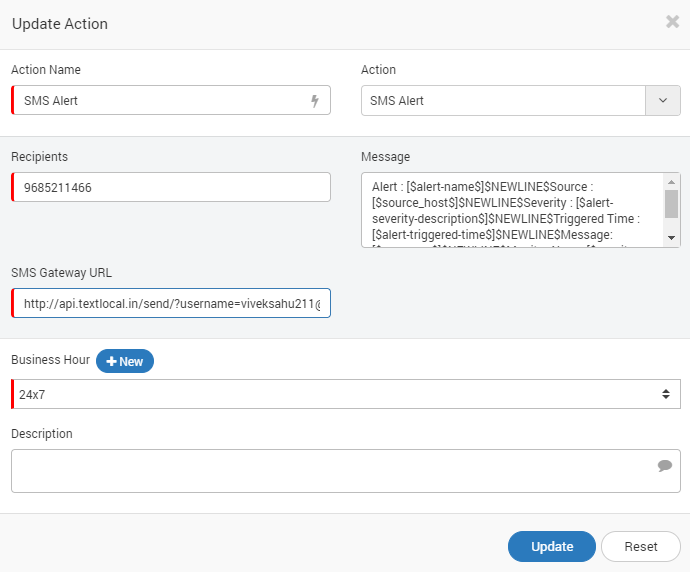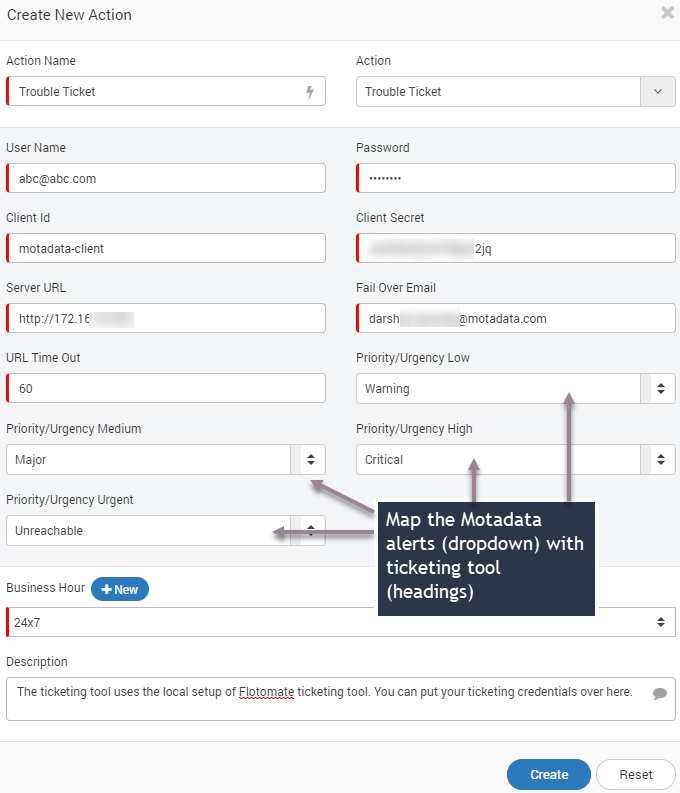19. Integrations in Motadata¶
Through Application Programming Interface (API) Motadata processes different requests to manage monitors and send important alerts. The APIs can be used for following operations:
Create monitors
Update monitors
Delete monitors
Send alert notification through email
Send alert notification through SMS
Generate ticket in Motadata ITSM
Generate ticket in TCTS ticketing system
Motadata supports integration with 3rd party systems over SOAP/REST APIs (web services) with support of XML and JSON formats. Motadata doesn’t require you to always develop an API for all above functions. For example: Email and SMS are standard features and you can configure them in Motadata GUI. Similarly, you can configure Motadata-ITSM from GUI. You’ll need to develop an API for monitor operations and any third party ticketing tool.
19.1. Email Configuration¶
As a standard process, an system requires SMTP and IMAP settings for sending and receiving emails respectively. Since Motadata only requires to send email, it requires only SMTP settings. The SMTP configuration is available in: Admin > Mail Server. Click here for details on email configuration.

Email SMTP Configuration¶
19.2. SMS Configuration¶
SMS facility in Motadata sends an SMS message to the intended recipient about the alerts. The API in SMS alert mainly depends on the service provider. Hence, you’ll need to create the API URL with all the parameters (header, authentication, token, message, etc.). The SMS configuration is available in Actions > New > Action type: SMS.

SMS Configuration¶
Message template by SMS gateway service Provider.
Message Approved Sample Template:
Alert: #field1# Source :#field2# Severity :#field3# Triggered Time : #field1# MSCL
In NMS, the Message format and it’s parameter must be matched with the approved message template.
Created Message as per template:
Alert: [$alert-name$] Source : [$source_host$] Severity : [$alert-severity-description$] Triggered Time : [$alert-triggered-time$] ABCD
SMS gateway URL information should be correct including username, Password&sender ID. Sample SMS gateway URL: http://smsc.biz/httpapi/send?username=abc@software.in&password=abc&sender_id=ABCD&route=T&phonenumber=**********&message={message}
Each component of SMS gateway URL is explained below:
http://smsc.biz/httpapi/: It is the URL of SMS Gateway.
username= abc@software.in: It is the Username of SMS Gateway Portal.
password= abc: It is the password of SMS Gateway Portal.
sender_id= IDXX: Sender id will provide by SMS Service Provider.
route=T&phonenumber= ******: It is the phone number of the recipient.
message={message}: This parameter must remain as it is. No need to replace the word “message” with any other text. Ensure that the word “message” is enclosed within curly brackets. This will be call to generate message as per template.
19.3. Motadata ITSM¶
The ITSM is a ticketing system that generate tickets when a monitor is in alert state. Motadata automatically sends input to ITSM to create, update and close tickets. The ITSM configuration is available in Actions > New > Action type: Trouble Ticket. Ref: Click here<trouble_ticket> for details on ticketing action.

Create Trouble Ticket¶
19.4. Manage Monitors¶
You can create APIs to create and manage monitors in Motadata. It includes: create, update and delete functions. Also, you can fetch various details of monitors. Download REST API document for all the APIs related to the monitors. The document also contains information about TCTS Ticketing System.
19.5. SLA API¶
Motadata ITSM uses SLA API for proper escalations and notifications to different stakeholders. The SLA API process data between Motadata and ITSM. Download SLA API document for the SLA API.